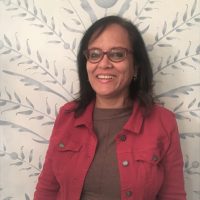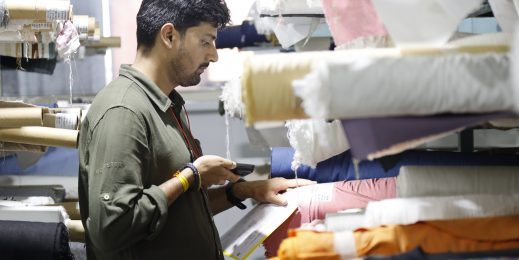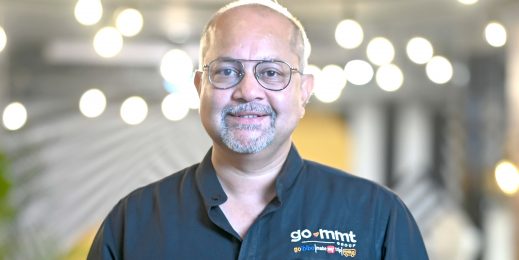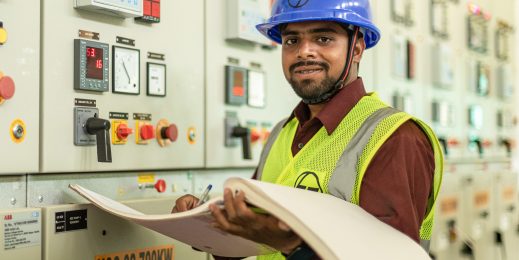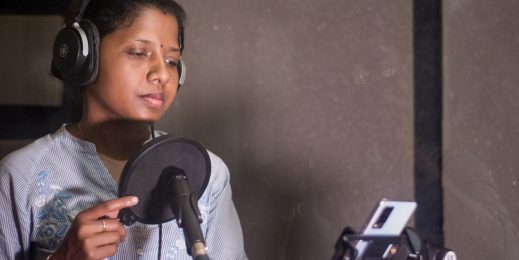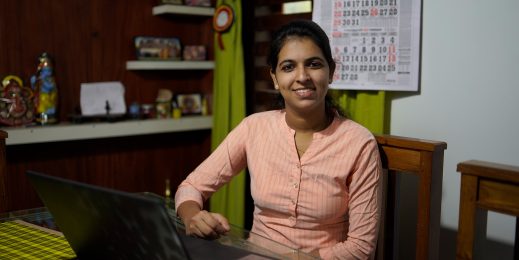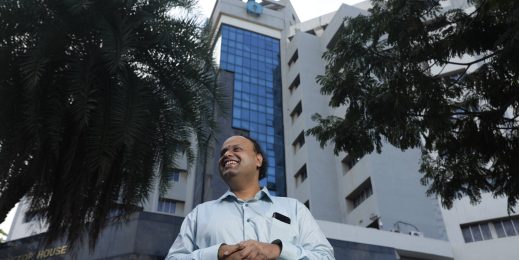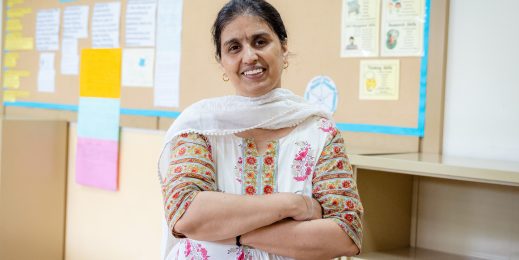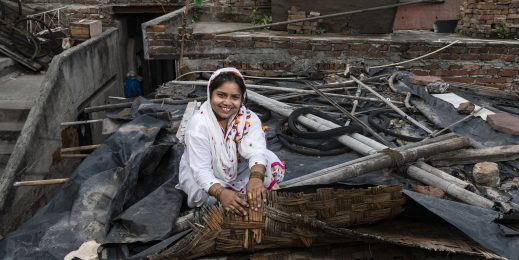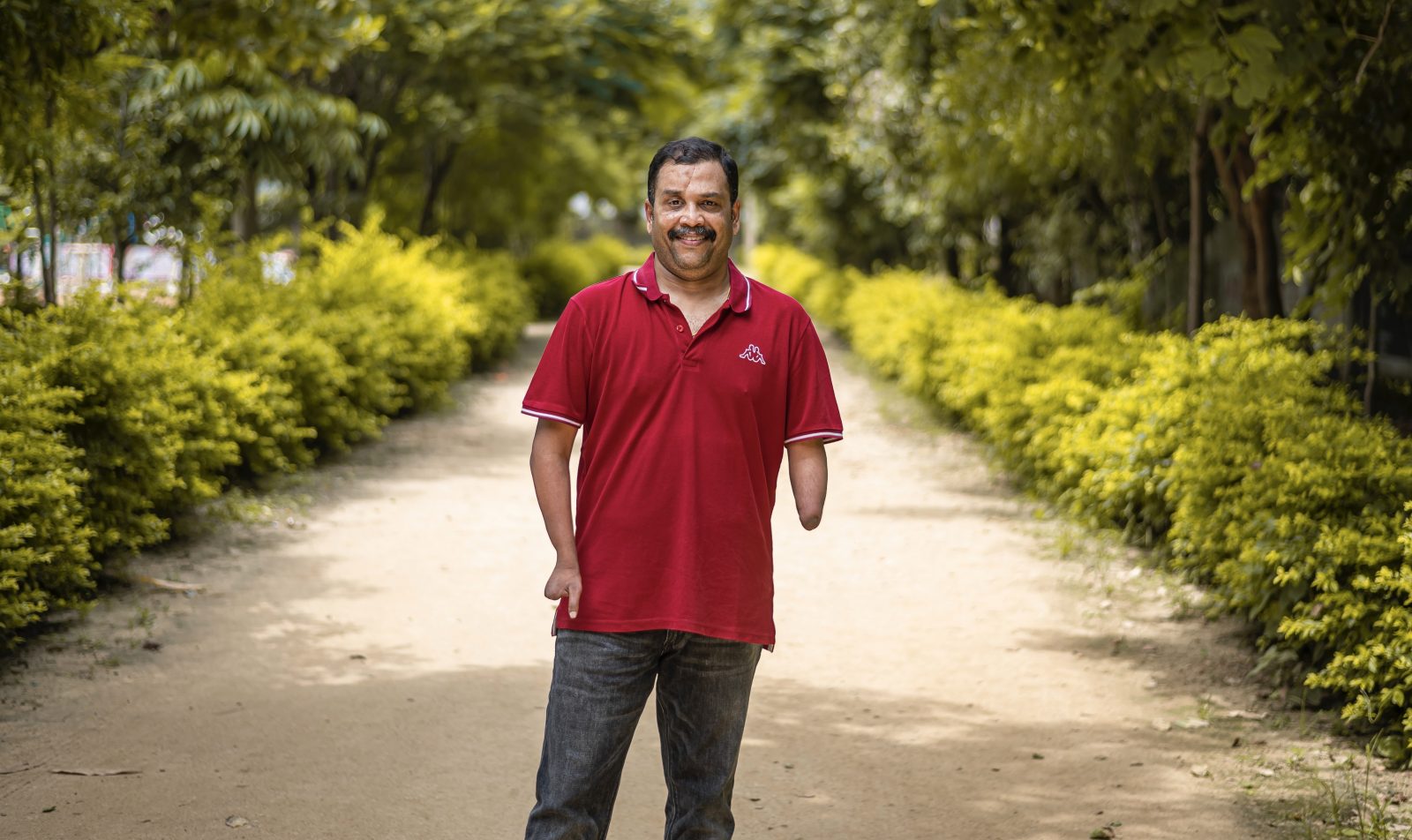
Accepting my reality was the first step to my recovery: Biju PK
A childhood accident changed Biju PK’s life forever. A kite he was flying got entangled in some high-voltage wires and he got electrocuted while retrieving it. The shock burnt both his hands and doctors had to amputate the lower half of his left arm and most of his right hand. He was just 12.
After years of surgeries and therapy, he set out to live a life that is mobile and independent.
So it’s no wonder to hear him talk about his tech career in a global team and his passion for driving. Every year, he takes his family on a road trip from Hyderabad, where he works, to visit his hometown nearly 560 miles (900 kilometers) away in Coimbatore in India’s southern state of Tamil Nadu.
“I drive a compact car, but I’m looking around and plan to buy a bigger car soon,” he says.
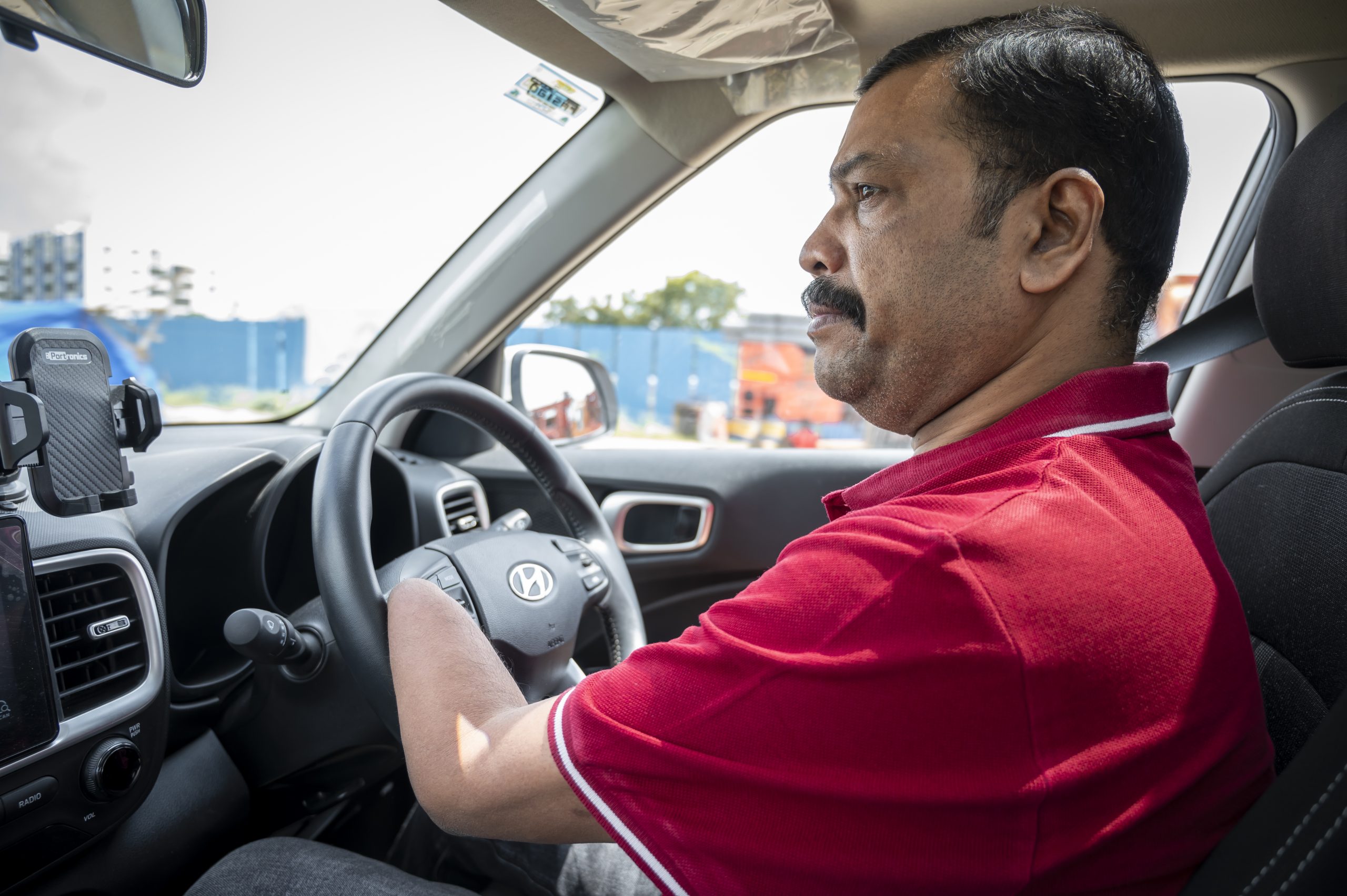
It took some time for the 12-year-old to come to terms his new reality. But once he did, he began to improvise, educate, and advocate for himself.
“I always had people who helped me with my daily chores when I was at home. At school and college, my friends helped me out. But when I started working, I realized I could not depend on anyone,” he says.
Biju brought the same outlook to Microsoft when he joined the company’s Hyderabad office as a proposal writer nearly 10 years ago.
“I have always insisted that people treat me the same way they treat people without disabilities. And that’s what I love about Microsoft. I was not discriminated against or treated differently here. No one stared at me and there was no leniency in the responsibilities that I was given,” says Biju, who now works as a project manager at Microsoft India Global Delivery.
His colleagues, many of whom work in South Africa, the UK, and across Europe, work with him remotely and don’t even know about his disability. And Biju prefers keeping it that way.
“He doesn’t need any additional support. He’s confident, willing to work hard and doesn’t shy away from taking up tougher challenges, both at work and in his personal space,” says Sunita Tiwary, Biju’s manager.
The fight for survival
Biju’s journey to becoming independent, however, has been challenging. After his hands were amputated, he spent three months in the hospital, going through several recuperative surgeries and physiotherapy. Since then, his only goal was to survive and become independent.
“It was a matter of survival for me. And when it comes to survival, you start to experiment and devise new ways to become self-sufficient. Accepting my reality was the first step towards recovery,” he says.
Biju was never treated differently by his family, friends, and teachers after the accident. That, he says, was instrumental in making him believe that he can achieve anything he sets his mind to.
His younger brother, Sunil PK, recalls the first couple of years after the accident “the toughest” for the young schoolboy and his family.
“Despite the challenges that he’s faced since the accident, he never gave up,” Sunil says. “The biggest lesson that I have learned from my brother is to accept one’s reality and navigate through life with grit and composure.”
It was this belief that led Biju to undertake a long bicycle ride from his home to his school, just a year after his accident.
“One day, Biju surprised us all by cycling 15 kilometers (9.3 miles) to school. He never gave up. A few years later he started riding a scooter, and later a heavy-duty motorbike,” recalls Anand Narayanan, Biju’s school friend who now works as an executive at a garments company.
But what started as a fight for survival quickly became a hobby, and then a passion. Being behind the wheel empowered him, Biju says, teaching him how to navigate the roads and his life on his own terms. He has undertaken several road trips across South India, and the learning process, on the road to becoming independent, will not stop for him any time soon.
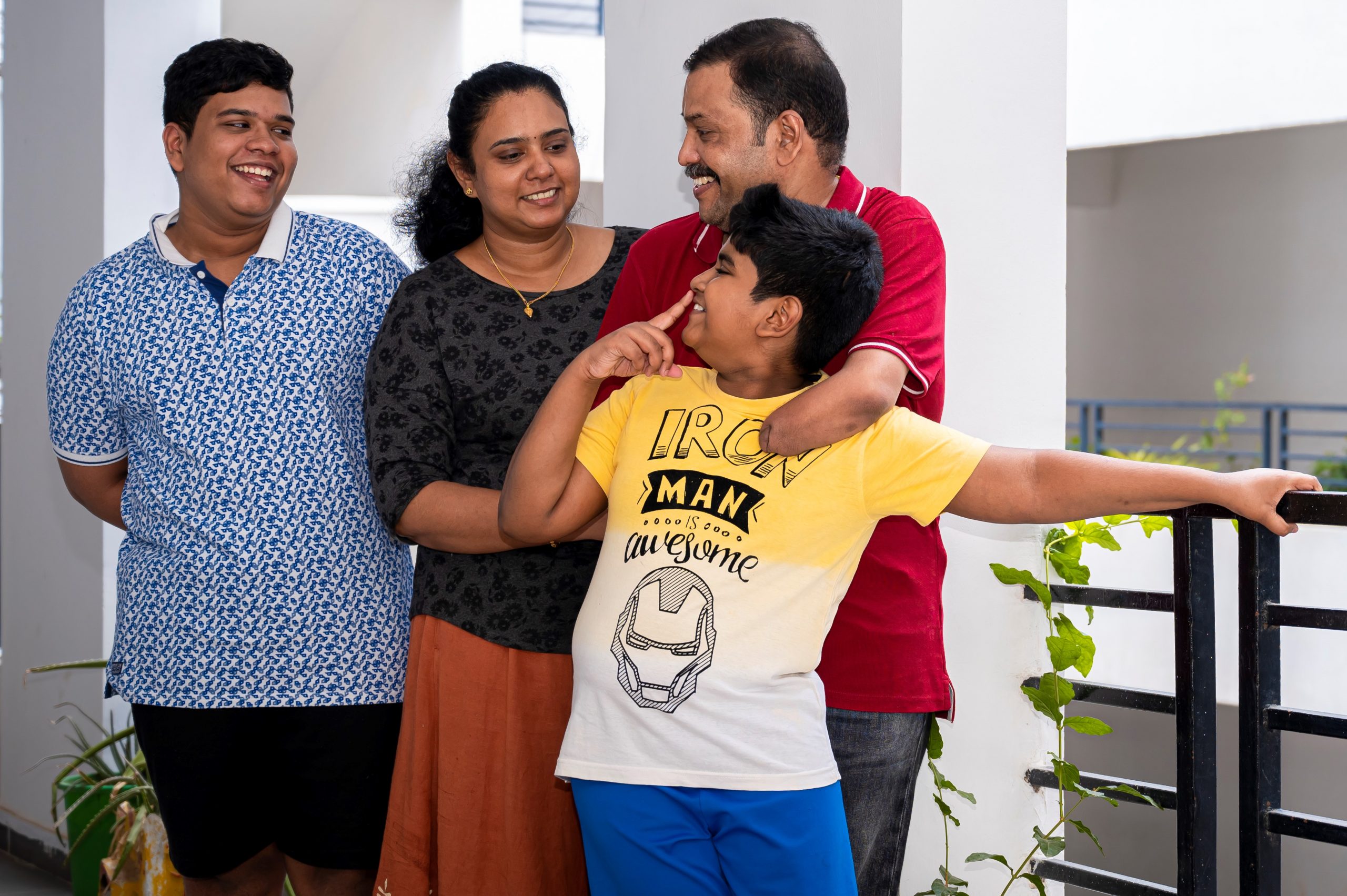
Currently, Biju is learning how to eat with a spoon, just like he has learnt and unlearnt other daily skills – from signing documents, to the more mundane tasks like making his bed, washing his clothes. He’s even working with a tailor to design trousers that he can put on without help so he can live an independent life.
“When I eat at restaurants, people stare at me. Sometimes I see people staring into my car to check if I’ve made any adjustments. But that’s not their fault. They’ve never seen someone like me before doing things normally,” he adds matter-of-factly.
Biju has faced challenges during his professional journey. Nearly two decades ago, when he applied for his first job, an HR executive set out a typing assignment for him to check his accuracy and speed because he was a person with a disability.
“She felt like I was not suitable for the position. I asked her not to judge me and that I’m not what I look,” Biju says. He ended up with 95% accuracy and a 45 words per minute score and landed the job.
Despite the prejudices, Biju takes small steps to give back to the society. Every year when he is at home in Coimbatore, he spends time volunteering at the hospital where he was treated after his accident.
“Whenever I’m in Coimbatore, I try to visit the hospital to speak with patients who have lost their limbs and are undergoing rehabilitation. I deeply understand the mental trauma that the person and the family go through,” he says.
While it doesn’t cost him more than half-an-hour of his time to offer counselling and share his own experiences, he believes it can be life-changing for someone who’s lost their upper limbs and need support.
“They feel optimistic about the future when they see me leading a normal, fulfiling life,” he says.
His parents named him Biju–a common name in Malayalam, their mother tongue. They probably didn’t know back then that the most uncommon ‘courage’ was destined to become his middle name!
Ishani Duttagupta is an independent journalist and feature writer covering immigration policy and trends, Indian diaspora, business, education and lifestyle.





